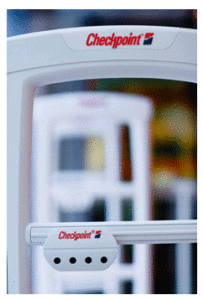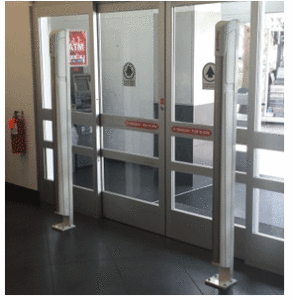 Have you been keeping up with the news? It appears the stock market is on the verge of breaking new records. People are gaining confidence now that some economists are expressing optimism that we are about to see a jump start in economic growth. Does that mean EVERYONE is going to benefit? Unfortunately, the answer is no. There are many people who will continue to work in their current jobs and experience little personal benefit in their own eyes. What do I mean, “In their own eyes?” Just this, there are some people who are not satisfied with their job, or financial situation, or any number of things in their life and do little or nothing to try to change that. What they WILL do is get jealous when they see others who do well. It may be a co-worker who gets a promotion, a friend who has received a pay raise, a relative who has purchased a new car, there are lots of things that people can get jealous over. Sometimes this jealousy turns into an attitude of “Keeping up with the Jones’s” and can result in someone engaging in dishonest activity so they can have new things too. Frequently those who steal because they haven’t gotten that raise or promotion will try to justify their actions by rationalizing that they deserve it and aren’t being recognized for their contributions.
Have you been keeping up with the news? It appears the stock market is on the verge of breaking new records. People are gaining confidence now that some economists are expressing optimism that we are about to see a jump start in economic growth. Does that mean EVERYONE is going to benefit? Unfortunately, the answer is no. There are many people who will continue to work in their current jobs and experience little personal benefit in their own eyes. What do I mean, “In their own eyes?” Just this, there are some people who are not satisfied with their job, or financial situation, or any number of things in their life and do little or nothing to try to change that. What they WILL do is get jealous when they see others who do well. It may be a co-worker who gets a promotion, a friend who has received a pay raise, a relative who has purchased a new car, there are lots of things that people can get jealous over. Sometimes this jealousy turns into an attitude of “Keeping up with the Jones’s” and can result in someone engaging in dishonest activity so they can have new things too. Frequently those who steal because they haven’t gotten that raise or promotion will try to justify their actions by rationalizing that they deserve it and aren’t being recognized for their contributions.
So what does this mean for the employer? You are excited about increasing sales, selling more merchandise, perhaps hiring more people and even expanding your business. First, you have to be alert to the people you currently have working for you. You should also include involving your supervisors in this since they may be closer to your workers and more likely to hear scuttlebutt than you will in the various work areas. If you have an employee who has been passed over for promotional opportunities make sure you explain to them why they were not chosen and provide feedback and even create a professional development plan with that employee if they express interest. If they don’t want feedback and don’t seek input on their development, they are probably not really interested and may be looking for a promotion for the sake of a promotion. Often this is the employee who will go back to their work center and complain and gripe. You must address this quickly and if the behavior continues get rid of this type of worker, they can create a negative work environment and it does influence others who may normally be great workers.
Watch for employee theft, especially from the disgruntled workers. There is a tendency to see themselves as victims and deserving of something, even if they have to steal it to get it. You may start to see extra money in your registers in an improving economy. You could have a disgruntled cashier who sees that money and since they only received a 2% pay raise on their last review, they decide they are going to give themselves a raise. Watch for all cash shortages, some stores make a minimum of $5 missing before it is addressed. In many instances I had cashiers who stole two or three dollars for lunches for quite a while before moving up to greater amounts of cash theft. If you start to see any trends, you need to address it early.
Then there is the employee working in the electronics department (as an example) who sees friends or acquaintances buying new televisions, laptop computers, or the latest techy gadget. This is the employee who gets green with jealousy because they aren’t making “enough” and can’t afford these goodies. It is unfortunate but it happens and I have apprehended employees in very similar circumstances. When it came down to the bottom line, after all the excuses were done it was usually a case of, “I just wanted it.” Employee package checks and receipt checks and the use of Electronic Article Surveillance (EAS) retail anti-theft devices often discourages much of this behavior. I would still suggest you have a discussion with an employee if you hear them complaining or get word of it. You may get a better feel if it is just idle chatter or a potential problem waiting to happen.
An improving economy is exciting for store owners but watch out, those Jones’s may have what your employee wants and that could come at your expense. Make sure you spend time with your employees and listen to what they are saying. Your investment of time may save you headaches in the future.
 Police Departments across the nation are busy this holiday season launching operations aiming at catching shoplifters.
Police Departments across the nation are busy this holiday season launching operations aiming at catching shoplifters.
 s level, but your bottom dollar. When people have a problem, they research a solution. One way to prevent shoplifting is having an electronic article surveillance system installed by a reputable company. Searching for such a company can be daunting. Shoplifting is an issue that needs to be addressed and resolved quickly. Why would you choose Checkpoint equipment from Loss Prevention Systems Inc. (LPSI?)
s level, but your bottom dollar. When people have a problem, they research a solution. One way to prevent shoplifting is having an electronic article surveillance system installed by a reputable company. Searching for such a company can be daunting. Shoplifting is an issue that needs to be addressed and resolved quickly. Why would you choose Checkpoint equipment from Loss Prevention Systems Inc. (LPSI?) nce and typically resolve potential issues. With its strong frame and Evolve capabilities, it will last a long time and is “future proof”.
nce and typically resolve potential issues. With its strong frame and Evolve capabilities, it will last a long time and is “future proof”.  Can you believe we are in December already? This year has flown by and we’re in the home stretch. For many, many small and large businesses alike, this next month is crucial to profitability. Often times, the 4
Can you believe we are in December already? This year has flown by and we’re in the home stretch. For many, many small and large businesses alike, this next month is crucial to profitability. Often times, the 4
 In the previous article, I gave some great tips on how to prevent and prepare for a robbery. Like many things, it’s impossible to provide a solution that is all encompassing. After I penned that article I couldn’t help but think that there was more that I could share; more that I should share. I draw on over a decade’s time spent in the LP field and this is one of those topics that I just can never stress enough to my store managers. So, what else can you do to limit a robbery and/or cash loss?
In the previous article, I gave some great tips on how to prevent and prepare for a robbery. Like many things, it’s impossible to provide a solution that is all encompassing. After I penned that article I couldn’t help but think that there was more that I could share; more that I should share. I draw on over a decade’s time spent in the LP field and this is one of those topics that I just can never stress enough to my store managers. So, what else can you do to limit a robbery and/or cash loss? It’s official folks. It’s December and the year is almost over. It also means that you’ve probably hired some additional help around the store. Whether they be temporary, part-time or full-time employees, they all have one thing in common; they have the potential to steal from you. I hate to sound so cynical, but I’m a realist. With December historically being the biggest month for internal theft, I’d thought I’d share some of my tips on how to spot a potential dishonest employee.
It’s official folks. It’s December and the year is almost over. It also means that you’ve probably hired some additional help around the store. Whether they be temporary, part-time or full-time employees, they all have one thing in common; they have the potential to steal from you. I hate to sound so cynical, but I’m a realist. With December historically being the biggest month for internal theft, I’d thought I’d share some of my tips on how to spot a potential dishonest employee.
 From
From 